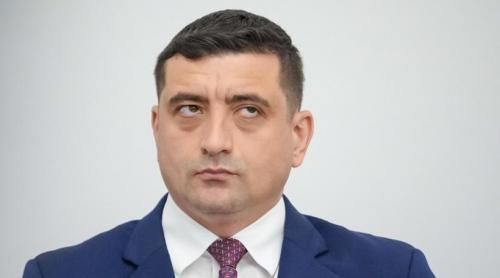
Watch carefully the behavior of Russia. It will not stop where it stands, now that it suspended its participation in the Treaty on Conventional Armed Forces in Europe [CFE], which was signed in 1990 by member states of both the NATO and the former Warsaw Treaty, thus sealing the de facto end of the Cold War.
Once the KGB-controlled president Vladimir Putin will leave office, the KGB would not want to lose control over the political power in Moscow.
Russia re-asserted itself on the international arena blackmailing Europe with leaving it out of gas supplies, and now pushed the button one notch higher, with its stepping out of the CFE Treaty.
I would expect Russia to reconsider even the treaties dealing with the non-proliferation of nuclear weapons.
The democratic reforms adopted in Russia during the presidencies of both Michail Gorbachev and Boris Yeltsin fed the frustration of people still nostalgic for the good old days of the Soviet Union.
Former KGB and GRU officers, former dignitaries in the communist party, generals in the Red Army and managers of the arms manufacturing companies - they all wanted to get back what they lost, once Russia took a turn towards democracy.
The young people, nostalgic for the good old days, educated by the KGB in the West, gave the tone of the new politics Moscow is now embarking on with a zest.
It may be a rock-opera sung with Western instruments performing on the streets of Moscow, but the tune is the one of the good old father of terror Felix Edmundovich Dzerzhinsky.
In 1999, when talk about adapting the CFE to post-Cold War realities was on, Russia pledged to take out its troops from former Soviet states now out of its national territory.
Cases in point were Republic of Moldova and Georgia.
However, Moscow did not make good on its promises and continued to exert its military presence in what otherwise are independent states, recognized as such by the international community.
The closest example to home is the one of the rouge territory of Transnistria, a sliver of land on the west bank of the Nistru River, in the Republic of Moldova.
Russia stationed there its 14th Army and in spite of all subsequent promises, under the aegis of the OSCE included, it failed to take out its military arsenal.
Transnistria stays as a rouge territory, with no international recognition, and as a safe-heaven for arms dealers and oil, alcohol and cigarettes smugglers; this is a direct threat to the European security.
In spite of its promises sealed in 1999 in Istanbul, at the OSCE meeting, Russia did not take out its arms from Transnistria to this day.
This should be a stern warning of what Moscow's word is worth for.
By the same token, when Georgia steered towards democracy, it had to pay a heavy price from the influences exerted by Russia.
This time, locating US training camps on the Black Sea Coast of the NATO member states of Romania and Bulgaria is no true threat towards Moscow.
None of the operations here warrant the reactions Russia had to the move.
The only valid explanation would be its disenchantment with the fact that the Black Sea no longer stands as its inner lake for transfer of arms towards hot regions in the world.
Russia is now like a bear fed all his life on pretzels and vodka, in a cage broken open by western tourists. It wears now a cap on which Democracy is stenciled at the front, while Made in China is written at the back.
The big bear is disoriented and nervous, still addicted as he is to his vodka and his whip.
He would like to jump back into his cage and shout: Down with the imperialists' freedom!

















